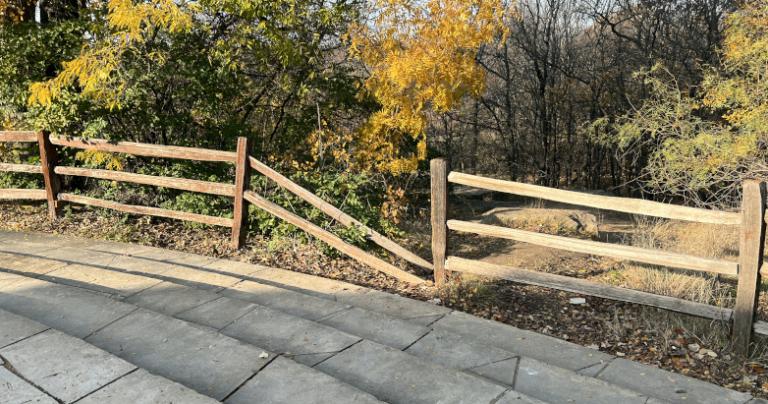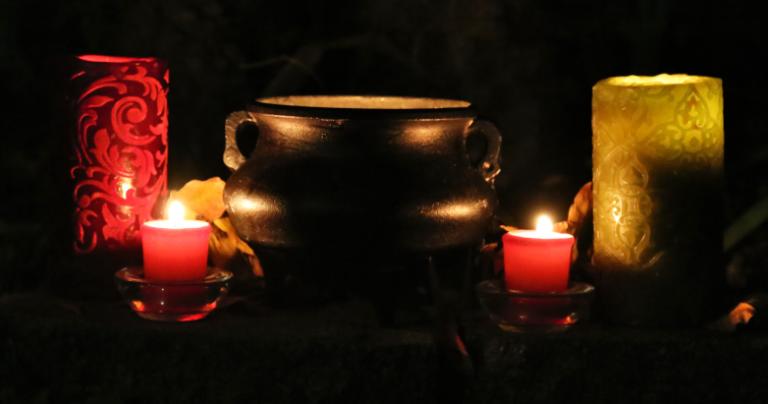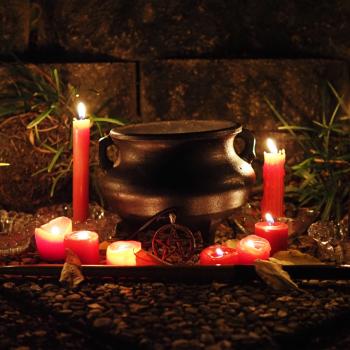It’s getting to be that time of year.
I’m not talking about Winter Solstice, or Christmas, or Hanukkah, or even Festivus.
I’m talking about New Year’s Day and the fine old tradition of making New Year’s resolutions.
Which is usually followed by the equally old tradition of breaking New Year’s resolutions.
Why do we do this? Why do we resolve to do new things in the new year and then drop them before Imbolc gets here on February 1st?
Ultimately there are as many reasons as there are resolutioners. Here are five of the most common reasons people break New Year’s resolutions – and what we can do instead.
They resolve to do things that aren’t important to them
This is the most common reason people break their New Year’s resolutions – and I speak from personal experience. Many years of personal experience.
We resolve to do the things we think we want, the things society tells us we’re supposed to want – the things the evil sorcerers of the advertising world tell us will make us happy, if only we’ll buy what they’re selling.
The most common New Year’s resolutions are around health. People resolve to exercise more, ignoring the fact they hate most forms of exercise. They resolve to eat healthy, ignoring the fact they love rich foods – and the fact that healthy food is expensive, in both money and in time. They resolve to lose weight without considering if their weight has any real impact on their lives as they live them.
They set goals that deep down aren’t very important to them, so of course they abandon them the first chance they get.
What to do instead: begin a process to discern what you really want.
Spend time in meditation and contemplation. Practice divination. Don’t ask “what should I do?” (never give away your agency to a deck of cards or to the spirits that may or may not be behind them) but rather ask “what do I want?”
What makes you happy when you do it? Do more of it. Where do you want to be in the mid to long term future? Work toward it. What do you need to live a better life? Figure out a way to get it.
Resolve to do and be what you want, not what you’ve been told you’re supposed to want.
They never turn their resolutions into plans
Some people know what they want and make good, solid, meaningful resolutions.
And then they stop there. So either they never really get started, or they take a couple steps in the right direction and then lose sight of where they’re going.
Simply making a resolution doesn’t accomplish anything. “The power of intention” is useless without follow-up action.
And that works best with a plan.
What to do instead: set a specific goal and develop a realistic plan to reach it.
Health goals can be good goals… and sometimes necessary goals. But “I resolve to exercise more this year” is so vague as to be meaningless. “I resolve to exercise every day” is also vague, as well as unrealistic.
I’ve been walking a fair amount over the past few years (it’s a form of exercise I enjoy), but I’ve been very sporadic about it. This year I set a goal to walk for 20 minutes or more three days a week. My plan was to do a short walk early in the morning on the days when I’m working from home, and then a longer walk on the weekend. Mix in some mid-day walks when I can take a long lunch.
I may not hit that goal for the year as a whole (it’s going to be close). I had a really bad summer, and the Texas heat was only part of it. But I’m exceeding it now, and I’m feeling better than I have in several years. That’s a good thing.
They don’t anticipate difficulties and setbacks
Boxer Mike Tyson famously said “everybody’s got a plan till they get punched in the mouth.” Whatever your goal, whatever your plan, sooner or later you’re going to get punched in the mouth – hopefully only metaphorically.
What if you set an exercise goal and then you get injured? Or a travel goal and then unexpected house repairs wipe out your travel budget? Or a reading goal and then your paying job starts demanding constant overtime? If something interferes or interrupts it can create serious roadblocks to achieving your resolution – not to mention it’s disheartening.
What to do instead: consider what’s likely to interfere and decide how you’ll respond.
There’s certainly something to be said for positive thinking, and especially for not dwelling on the million and one things that might go wrong. But it’s worth giving some thought to the two or three or four things that are most likely to go wrong. And then when something does go wrong – because Murphy’s Law is still very much in force – you’re not surprised.
And you already know what to do.
They don’t review their plans until it’s too late
A goal is a destination. A plan is a roadmap to get there. Neither control your steering wheel. If you miss that left turn at Albuquerque you may find yourself a long way from where you want to be.
Our plans will always be imperfect, because we will never have perfect information and perfect foresight. The question is how much those imperfections will impact our journey. A slip-up that’s no big deal if it happens once can become a serious problem if it happens over and over again. A major error can take us further away from our goal instead of closer to it.
What to do instead: conduct regular reviews and make necessary adjustments.
You have a goal. You have a plan. The plan has intermediate steps and target dates for reaching them. On a regular basis, take a few minutes (it shouldn’t take longer than that) to pause, see how you’re doing, and determine if you’re still on track. If so, great – keep doing what you’ve been doing. If not, do something to get back on track.
How often do you need to review your progress? It depends on the nature of your goal and the steps on your plan, but for the kind of things that typically become New Year’s resolutions I’d say once a week for the first month or two, and then no less than once a month after that.
Regular reviews also keep your resolutions in the front of your mind, which keeps you from forgetting about them.
They act like New Year’s Day is magical
Why do we make resolutions at the new year? It’s traditional. But why is it traditional – what’s special about the new year?
There’s something emotionally appealing about new beginnings. But the fact is that while a year is an astronomical phenomenon, what day we select as the end of the old year and the beginning of the new year is completely arbitrary. There’s nothing magical about January 1st, and certainly nothing that would make this day more auspicious for making resolutions or setting goals than any other day.
What to do instead: incorporate real magic into your plan.
I’m a Pagan who practices magic according to a three-fold theory. Perhaps you’re skeptical – that’s OK. Even if you don’t believe in Gods and spirits and even if you believe there are no unseen forces we can manipulate, some magic works by psychological programming.
Begin the practice of visualizing your goal: see yourself doing the things you resolve to do and reaching the goals you resolve to reach. Light a candle with a color that corresponds to your goal. Create and repeat a series of affirmations that you have and are what you want to have and be. Plant some helpful seeds deep in your subconscious mind and let them grow.
You don’t have to raise and direct energy or draw and charge sigils or stir magical ingredients in a cauldron.
But you can.
What to do now
If you’re reading this when it’s first posted, you’re in great shape. You’ve got three weeks to meditate and contemplate and think about what goals you want to set for next year. Once you figure out what you want (as opposed to what you’ve been told you’re supposed to want) then you can create a plan to achieve it. You can think about what might go wrong and how you can work around it or through it. You can set up a schedule to review your progress on a regular basis and make any necessary adjustments.
If you’re reading this in February or March and you’re trying to figure out why you broke your New Year’s resolutions, don’t beat yourself up. You didn’t break your resolutions because you were weak or lacked “will power.” It’s certainly not because you were “sinful.” It’s highly likely you made one or more of the common errors listed here.
Figure out what went wrong. Think about how you can do better.
And remember you don’t have to wait till next January 1st to start again.























